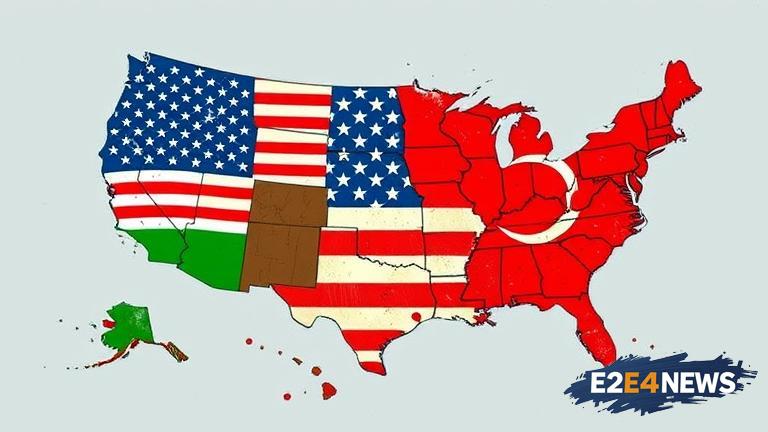The United States has been employing tariffs as a strategic tool to influence the policies and actions of its allies, a move that has significant implications for global trade and diplomacy. This tactic has been observed in various instances, where the US has imposed tariffs on imports from countries with which it has traditionally enjoyed strong trade relationships. The use of tariffs as a means of exerting pressure on allies is a complex issue, with both economic and geopolitical dimensions. On one hand, tariffs can be an effective way for the US to protect its domestic industries and promote its economic interests. On the other hand, they can also have unintended consequences, such as retaliatory measures from affected countries and damage to the global trading system. The US has used tariffs to target a range of products, from steel and aluminum to agricultural goods and technology. This has led to tensions with countries such as China, the European Union, and Canada, among others. The impact of US tariffs on global trade has been significant, with many countries experiencing economic losses and disruptions to their supply chains. Furthermore, the use of tariffs as a geopolitical tool has raised concerns about the erosion of trust and cooperation among nations. The World Trade Organization (WTO) has played a crucial role in regulating global trade and preventing the escalation of trade disputes. However, the effectiveness of the WTO in addressing the challenges posed by US tariff policies has been limited. The US has also been accused of using national security concerns as a pretext for imposing tariffs, a move that has been criticized by many as an abuse of the system. In response to US tariffs, many countries have implemented their own retaliatory measures, leading to a cycle of escalation and counter-escalation. The consequences of this trade war have been far-reaching, with many industries and businesses affected. The US has also been using tariffs to pursue its foreign policy objectives, such as pressuring countries to comply with its sanctions regimes. This has led to concerns about the extraterritorial application of US laws and the impact on the sovereignty of other nations. The use of tariffs as a means of exerting pressure on allies has also raised questions about the future of the global trading system. As the US continues to employ tariffs as a strategic tool, it remains to be seen how other countries will respond and what the long-term consequences will be for global trade and diplomacy. The situation is complex and multifaceted, with many different factors at play. The US has a long history of using economic leverage to achieve its foreign policy goals, and the use of tariffs is just one example of this. However, the current situation is unique in terms of the scope and scale of the tariffs imposed, as well as the range of countries affected. The global trading system is facing significant challenges, and the use of tariffs as a geopolitical tool is just one of the many issues that need to be addressed. The WTO and other international organizations have a crucial role to play in promoting cooperation and preventing the escalation of trade disputes. Ultimately, the use of tariffs as a means of exerting pressure on allies is a symptom of a broader set of challenges facing the global trading system, and it will require a comprehensive and coordinated response to address these issues. The US and its allies must work together to find a solution that balances the need to protect domestic industries with the need to promote global trade and cooperation. This will require a nuanced and multifaceted approach, taking into account the complex economic and geopolitical factors at play. The situation is evolving rapidly, and it remains to be seen how the US and its allies will navigate these challenges in the coming months and years. The use of tariffs as a geopolitical tool is a significant issue, and it will require careful consideration and cooperation to resolve. The global trading system is at a critical juncture, and the actions of the US and its allies will have far-reaching consequences for the future of international trade and diplomacy.
